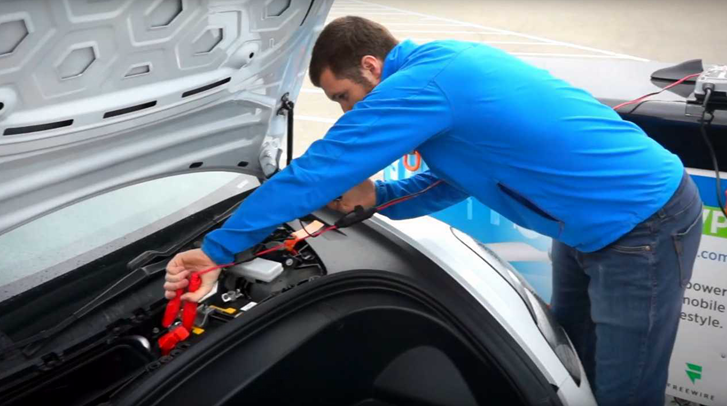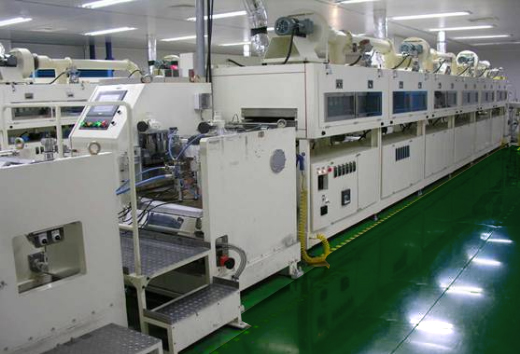Cheap Lithium Battery: Revolutionizing Energy Storage Power Stations
Introduction:
In recent years, the demand for clean and sustainable energy sources has increased significantly. As the world takes steps towards reducing carbon emissions and combating climate change, finding efficient energy storage solutions has become crucial. The development of lithium batteries has revolutionized energy storage power stations by providing a more reliable, scalable, and eco-friendly solution. This article will explore the advantages and potential applications of lithium batteries in energy storage power stations.
Advantages of Lithium Batteries:
Lithium batteries offer several advantages over traditional energy storage systems:
1. High Energy Density: Lithium batteries have a high energy density, meaning they can store a larger amount of energy in a smaller space. This compactness makes them ideal for installations where space is limited.
2. Longer Lifespan: Lithium batteries have a longer lifespan compared to other battery technologies. They can endure hundreds or even thousands of charge and discharge cycles without a significant decrease in capacity. This longevity ensures a more reliable and cost-effective energy storage solution.
3. Fast Charging and Discharging: Lithium batteries have a high charge and discharge rate, allowing them to absorb and release energy quickly. This feature is essential for power stations that require rapid response times to fluctuations in energy demand.
4. Scalability: Lithium batteries can be easily scaled up or down to meet the energy storage requirements of different power stations. This flexibility makes them suitable for various applications, from small-scale residential systems to large-scale grid-level installations.
Applications in Energy Storage Power Stations:
The versatility of lithium batteries has enabled their integration into different types of energy storage power stations. Some notable applications include:
1. Grid-Level Energy Storage: Lithium batteries can be used to store excess electricity generated by renewable energy sources, such as solar and wind power. This stored energy can then be discharged during periods of high demand or when renewable sources are unavailable. Grid-level energy storage helps stabilize the electrical grid and reduces the need for fossil fuel-based power plants.
2. Microgrids: Microgrids are decentralized power systems that can operate independently or in conjunction with the main grid. Lithium batteries play a crucial role in microgrids by providing reliable and instantaneous energy storage. They help balance the supply and demand within microgrids while enhancing their resilience and reducing their dependence on external power sources.

3. Electric Vehicle Charging Stations: The growing popularity of electric vehicles has increased the demand for charging infrastructure. Lithium batteries can be employed in charging stations to store energy during low-demand periods and supply it when needed. This approach ensures a more stable power supply for electric vehicles and reduces strain on the electrical grid during peak charging times.
4. Off-Grid Solutions: In areas without access to reliable electricity grids, lithium batteries can be used as standalone power systems. These off-grid solutions can provide electricity to remote locations, disaster-stricken areas, or regions with unreliable power supply. Lithium batteries’ long lifespan and high energy density make them an ideal choice for off-grid applications.
Conclusion:
Lithium batteries have revolutionized energy storage power stations by offering a more efficient, reliable, and environmentally friendly solution. Their high energy density, longer lifespan, fast charging and discharging capabilities, and scalability make them suitable for various applications. From grid-level energy storage to off-grid solutions, lithium batteries play a crucial role in enabling a clean and sustainable energy future. As technology continues to advance, further improvements in lithium batteries are expected, making them even more instrumental in powering our world.
-
 LiFePO4 stands for Lithium Iron Phosphate, which is a type of rechargeable battery. This battery is commonly used in electric vehicles, power tools, and consumer electronics due to its high energy density, long cycle life, and safety features. The LiFePO4 battery is made up of a cathode (positive electrode) made of lithium iron phosphate and an anode (negative electrode)...En savoir plus
LiFePO4 stands for Lithium Iron Phosphate, which is a type of rechargeable battery. This battery is commonly used in electric vehicles, power tools, and consumer electronics due to its high energy density, long cycle life, and safety features. The LiFePO4 battery is made up of a cathode (positive electrode) made of lithium iron phosphate and an anode (negative electrode)...En savoir plus -
 A 12V Lithium Iron Phosphate (LiFePO4) battery is a type of rechargeable battery that is commonly used in various applications. This type of battery is known for its high energy density, low self-discharge rate, and long lifespan. In this article, we will discuss the features, advantages, and applications of a 12V LiFePO4 battery. Features of a 12V LiFePO4 Battery...En savoir plus
A 12V Lithium Iron Phosphate (LiFePO4) battery is a type of rechargeable battery that is commonly used in various applications. This type of battery is known for its high energy density, low self-discharge rate, and long lifespan. In this article, we will discuss the features, advantages, and applications of a 12V LiFePO4 battery. Features of a 12V LiFePO4 Battery...En savoir plus -
 The world is currently facing a major energy crisis, and it is essential to create and implement innovative solutions to tackle this issue. One of the most promising solutions is energy storage, which involves storing energy during periods of low demand and releasing it during peak demand. This approach helps to reduce the strain on the power grid and ensures...En savoir plus
The world is currently facing a major energy crisis, and it is essential to create and implement innovative solutions to tackle this issue. One of the most promising solutions is energy storage, which involves storing energy during periods of low demand and releasing it during peak demand. This approach helps to reduce the strain on the power grid and ensures...En savoir plus -
 LiFePO4 batteries, also known as lithium iron phosphate batteries, have gained popularity as an alternative to traditional lead-acid batteries. These batteries offer several benefits, including longer lifespan, faster charging, and better performance in extreme temperatures. In this article, we will explore these benefits in more detail. Longer Lifespan One of the biggest advantages of LiFePO4 batteries is their longer...En savoir plus
LiFePO4 batteries, also known as lithium iron phosphate batteries, have gained popularity as an alternative to traditional lead-acid batteries. These batteries offer several benefits, including longer lifespan, faster charging, and better performance in extreme temperatures. In this article, we will explore these benefits in more detail. Longer Lifespan One of the biggest advantages of LiFePO4 batteries is their longer...En savoir plus -
 The agriculture industry has undergone a significant transformation with the introduction of high-power lithium batteries. These advanced batteries have revolutionized the way agricultural tools are powered, providing numerous benefits for farmers and enhancing overall productivity. With their increased energy density, longer lifespan, and improved performance, high-power lithium batteries have become an indispensable tool for modern farmers. One of the...En savoir plus
The agriculture industry has undergone a significant transformation with the introduction of high-power lithium batteries. These advanced batteries have revolutionized the way agricultural tools are powered, providing numerous benefits for farmers and enhancing overall productivity. With their increased energy density, longer lifespan, and improved performance, high-power lithium batteries have become an indispensable tool for modern farmers. One of the...En savoir plus -
 Lithium starter batteries are a relatively new technology that has been gaining popularity among car enthusiasts and racers. Compared to traditional lead-acid batteries, lithium starter batteries offer several advantages, including higher performance, longer lifespan, and a lighter weight. In this article, we will discuss the advantages of using a lithium starter battery and why it may be worth considering for...En savoir plus
Lithium starter batteries are a relatively new technology that has been gaining popularity among car enthusiasts and racers. Compared to traditional lead-acid batteries, lithium starter batteries offer several advantages, including higher performance, longer lifespan, and a lighter weight. In this article, we will discuss the advantages of using a lithium starter battery and why it may be worth considering for...En savoir plus -
 The battery industry is often referred to as the backbone of modern technology, as it powers numerous devices that have become integral parts of our daily lives. From smartphones to electric vehicles, batteries have revolutionized the way we live and interact with the world around us. With advancements in technology and growing concerns about environmental sustainability, the battery industry is...En savoir plus
The battery industry is often referred to as the backbone of modern technology, as it powers numerous devices that have become integral parts of our daily lives. From smartphones to electric vehicles, batteries have revolutionized the way we live and interact with the world around us. With advancements in technology and growing concerns about environmental sustainability, the battery industry is...En savoir plus

